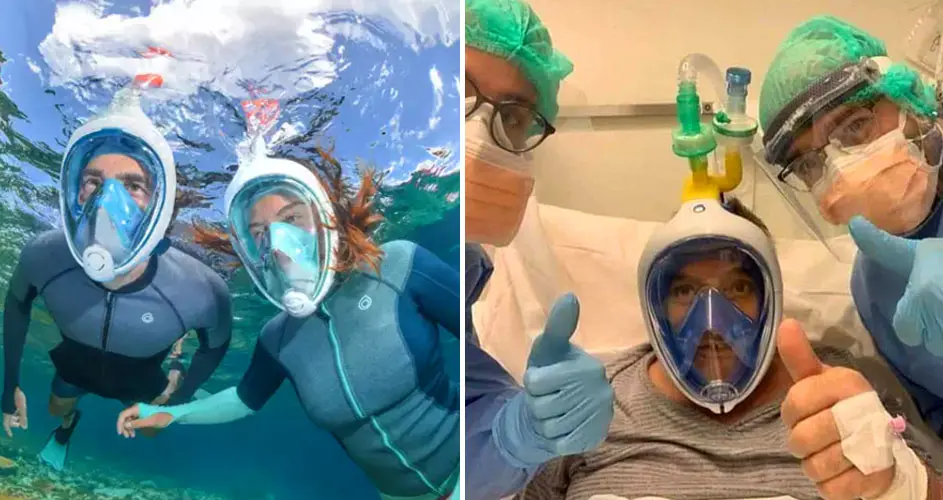The current crisis has not only pushed healthcare workers to the limit. It has also exhausted all affected countries’ medical supplies and equipment. Aside from personal protective equipment (PPE), a number of hospitals are also experiencing a shortage of ventilation masks for infected patients. To address this growing deficit, engineers from Isinnova has started looking into snorkeling masks as a potential alternative.
The idea was suggested by former head physician of the Gardone Valtrompia Hospital, Dr. Renato Favero. According to Dr. Favero, it’s possible to fix the shortage of hospital C-PAP masks by modifying some components of the readily available underwater gear. So, after reviewing Dr. Favero’s proposal, the Italian consulting agency immediately reached out to sporting goods retailer Decathlon.
Italian consulting agency Isinnova has partnered with sporting goods retailer Decathlon to construct makeshift ventilation masks out of snorkeling masks
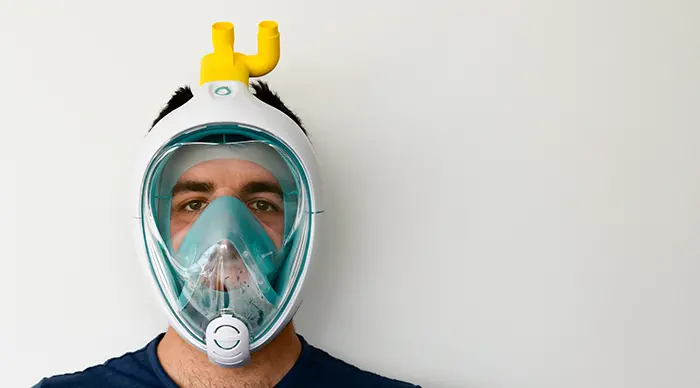
As the creator, manufacturer, and distributor of the Easybreath Snorkeling Mask, having Decathlon in the project is a major advantage. This gave Isinnova easy and quick access to the CAD design of the mask. In turn, this made it easier for the team to study the product and make all the necessary modifications.

Soon after, the modified mask was ready for connection to an actual respirator. To make the connection possible, the team has also designed the Charlotte and Dave valves for 3D printing. Isinnova revealed that the prototype testing on one of their colleagues at the Chiari Hospital has been successful. Likewise, Chiari Hospital’s testing on an actual patient has also gone smoothly.
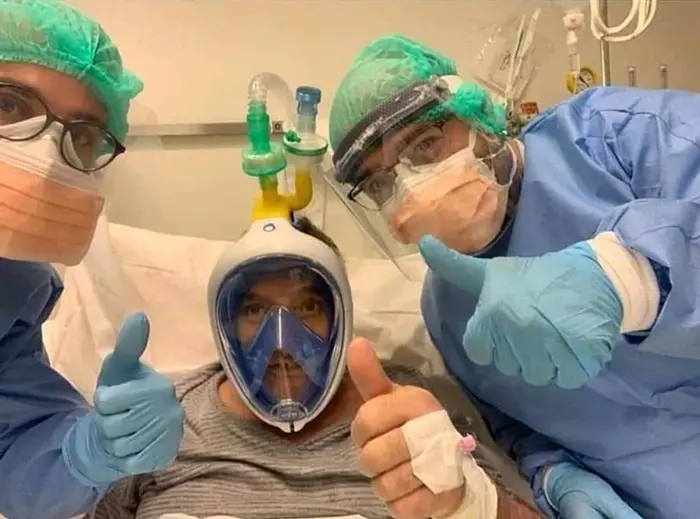
Isinnova has detailed the entire process and guidelines for making the alternative ventilation mask on their website. They have also included a copy of the blueprint, as well as all the necessary files for 3D printing. All these are free of charge, so hospitals in need could easily access them and use them at their disposal.
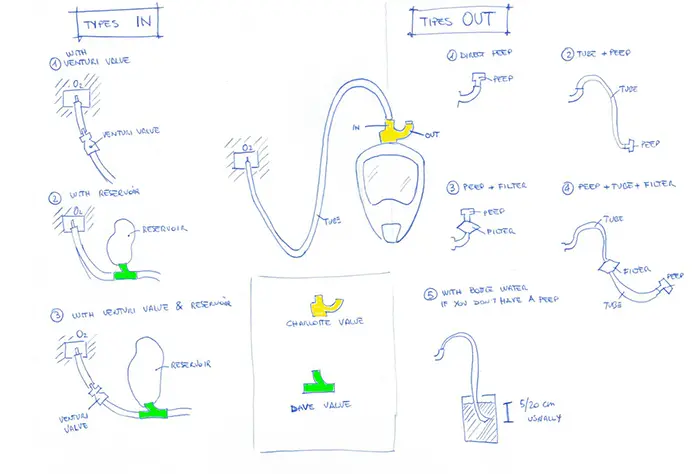
These modified masks certainly make a convenient alternative to C-PAP masks. In addition, they’re relatively cheaper too. Typical C-PAP masks normally cost around €100 while Decathlon’s masks retail for only €25. As long as hospitals have access to 3D printing facilities, they shouldn’t have problems producing the masks on their own.
Even so, Isinnova clarified that “neither the mask nor the valve fitting is certified.” As such, they don’t recommend the use of the device unless absolutely necessary. In the event that a patient agrees to use the said device, he or she should submit a signed declaration acknowledging the use of a non-certified biomedical device.
The video below details the step-by-step process of constructing the makeshift ventilation mask
The online community expressed their admiration toward the people behind the brilliant innovation



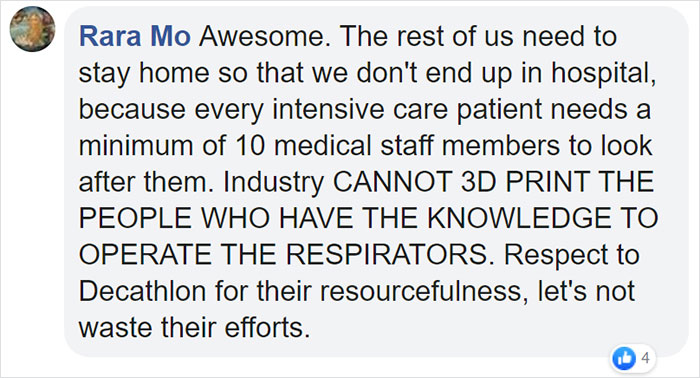






Source: Isinnova

